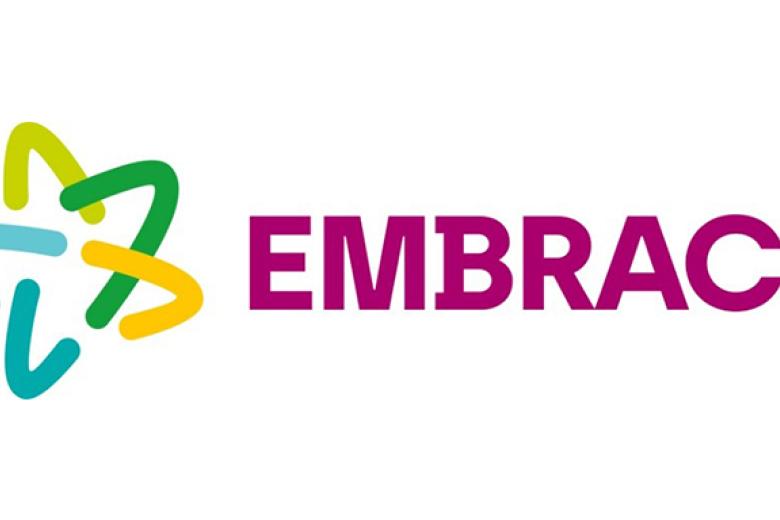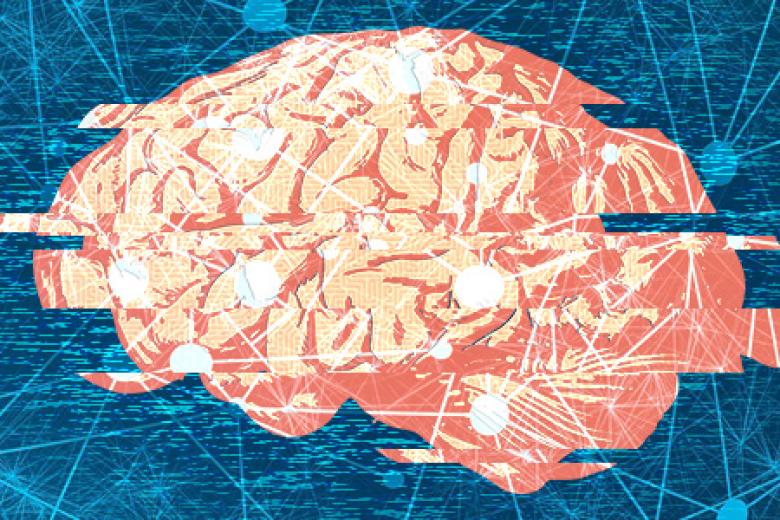@extramile_takumi
“I studied Biology for one year in Germany, but that was too much science for me. I was looking for a programme which focussed more on the human side, behaviour, lifestyle and social aspects. I visited the Open Day in Maastricht and was drawn to the international character of the programme. Its European angle is unique, as other public health programmes focus much more on the national system of that one particular country. That international approach is also reflected by the classroom. There are so many nationalities, even from outside Europe. I like that.
What makes the programme attractive as well, is that it offers a wide range of topics. The first year, for example, covers topics ranging from infectious diseases to the functioning of the European Union Institutions! And now, in my second year, we dive into more specific topics in the various fields; currently we are looking at the effects of lifestyle. We’ve been to visit the European Commission and will also go to the University of Krakow, Poland for a week. In my last semester, I will go on exchange to Hong Kong. That will be an interesting experience on all accounts!"
Information form BSc Global Studies
In this third satellite event of InScience/Maastricht, we’ll explore the world of the mind and thinking from three different angles. Will deep brain stimulation change psychiatry and our concept of happiness? What did Oliver Sacks learn us about being ‘a sentient being on this beautiful planet’? And how do racial and gender biases in AI systems impact our democracy?
This program is organised in close collaboration with Lumière Cinema and shows films from this year’s festival selection. Staff members of Maastricht University will introduce the films, and afterwards give a brief response to them and answer your questions.
DKE Master's/Exchange intro morning - February 2020
Young Universities for the Future of Europe
Infopack
What does the infopack contain of?
A brochure with information about all our bachelor's programmes, among which EPH
A message of the EPH student ambassador
Monthly updates about our health-related bachelor's programmes and open days
Bachelor's Open Day on 8 February
What does the Bachelor's Open Day entail?
In-depth sessions on your programme of choice, such as EPH
Information on Problem-Based Learning, admissions and tuition fees
Q&A with EPH teachers and students
Tour of the UM buildings, to get an impression of the university and its facilities
If you want to take part in the Experience Day on 25 March, please send an email to study-fhml@maastrichtuniversity.nl and apply.
Experience Day on 25 March
What does the Experience Day entail?
You will attend classes and experience what it is like to work together with others in a tutorial group
You participate in practical and skills trainings
You will be given the opportunity to ask questions to students and staff
You get a taste of life at Maastricht University
Student stories
Takumi, Roubitha and Lieke tell you about their choice for the bachelor EPH, and wether they still think that it was a good choice. Hopefully, their stories can be of help to you while choosing your future study programme.
By the way: Takumi is also the student ambassador for the bachelor EPH. On his Instagram account, he shows what it is like to be an EPH student in Maastricht (@extramile_takumi). You can also contact him through this Insta account, in case you have questions about the study programme content or (student)life in Maastricht.
If you have questions about admissions and such, you'd better chat with Maastricht University.
Takumi, 2nd-year student<br>21 years old<br>Dutch-Japanese
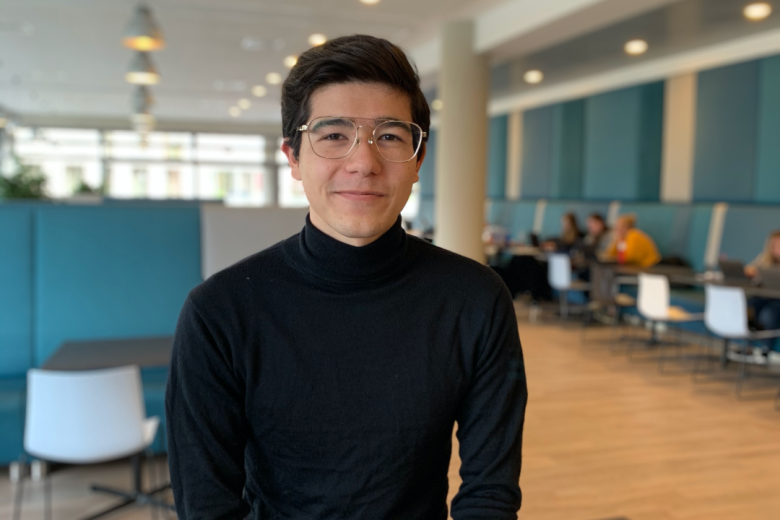
Roubitha, 3rd-year student<br>23 years old<br>French
"After high school, I realised that my interest in healthcare was broader than just medicine and the human anatomy. I was intrigued by how health systems and various dimensions of healthcare worked in different countries. That was the moment that I found the domain of Public Health!
For me, the uniqueness of the bachelor’s programme in European Public Health lies mainly with the European context included in the curriculum. The small and international cohorts further enrich the study programme by offering you possibilities to analyse the different public health systems in your country.
For my thesis on Health Literacy Interventions for the Indian Population I did an internal placement at the UM Department of International Health. And I collaborated with a university in India.
After my master’s degree, I plan to join an institution where my knowledge on Public Health and technical skills acquired at Maastricht University will be used to help developing countries to adapt their health policies to provide adequate healthcare."
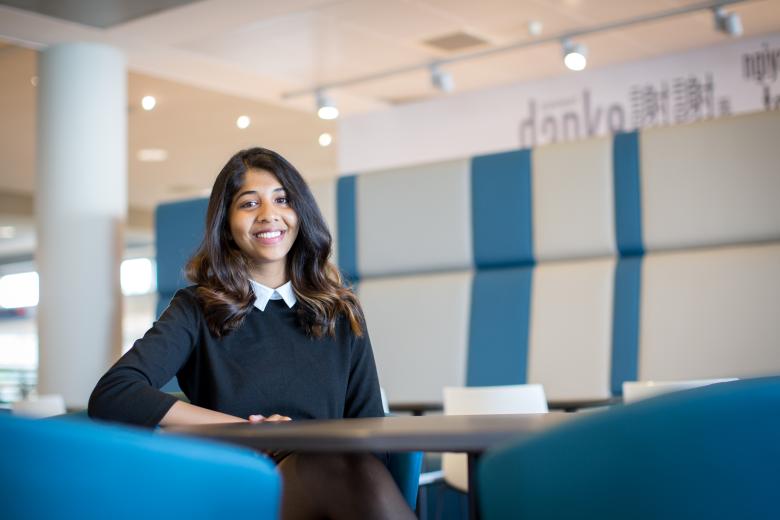
Emeline, alumna<br>26 years old<br>Dutch
"The EPH study programme was a great programme for me. It gave me the intellectual challenge that I was looking for. The topics covered were varied and highly informative at the same time.
I enjoyed learning about European health systems and having a diverse set of international peers to discuss their experiences with their national health systems. The bridge between theory and real-world practices was the best aspect of the programme for me.
The group dynamics during lectures and group meetings were interesting due to the different cultural and personal interpretations of health and quality of life. The Problem-Based Learning method was a good way to practice discussion skills and I felt encouraged to express ideas since the method provided for a supportive and intellectually stimulating setting.
Moreover, I quickly learned how to speak about complex issues in English. This gave me more ways to express myself and this helped me to understand more of the world and the people around me. It helped me to develop myself and help others around me more effectively.
In my current work at EUFAMI in Belgium as Projects and Communications Coordinator, I work (in person and virtually) with people from all over Europe, on projects to improve the lives of families affected by loved ones with mental ill health. EPH gave me the interpersonal skills and intellectual know-how to work confidently on various health topics, including mental health."
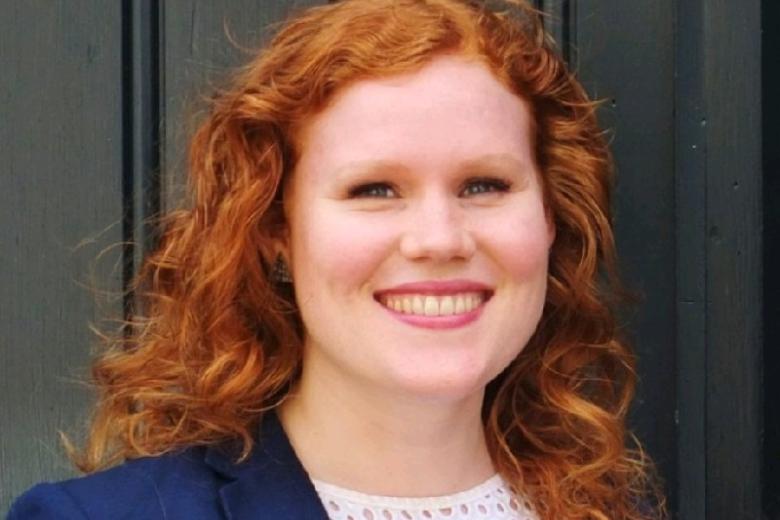
Research colloquia 2022-2023
Colloquia are normally scheduled from 15:30 to 17:00 in the Spiegelzaal (Grote Gracht 80-82), but might be moved online or as hybrid session (Zoom) if necessary.
14 September 2022
Meetings of the research clusters – locations to be confirmed by the cluster chairs
***********************
12 October 2022
The powers of the European Parliament: recent developments
Presentations:
- Book presentation: Adina Akbik (Leiden University), The European Parliament as an Accountability Forum: Overseeing the Economic and Monetary Union (Cambridge University Press, 2022)
- Michael Shackleton, Is the Spitzenkandidaten experiment dead?
Discussant: Christine Arnold
***********************
16 November 2022
Norms under threat: the EU’s responses to rights violations within and across its Eastern borders
Papers:
- Giselle Bosse, Values, rights and changing interests: The EU’s Response to the war against Ukraine and the Responsibility to Protect Europeans
- Akudo McGee, Outsourcing the defence of EU norms: the mobilisation of civil society to protect rule of law and human rights in Poland
Discussant: Petar Petrov
***********************
14 December 2022
Civil society organisations in political representation and litigation: opportunities and effects
Papers:
- Iskander de Bruycker, Evelien Willems, (University of Antwerp), Marcel Hanegraaff (University of Amsterdam), Champions of the poor? Civil society mobilization and the congruence gap between rich and poor segments of the public
- Francesca Colli, EU Law and social movements: multilevel legal opportunity structures
Discussant: Karin van Leeuwen
***********************
1 February 2023
What is politics, and how should it be analysed (and defended)?
Papers:
- Carlo Burelli (University of Chicago) and Janosch Prinz, A vindicatory functionalist genealogy of politics
- Book presentation: Carlos Domper Lasús (University of Zaragoza) and Giorgia Priorelli (University of Girona), Combining Political History and Political Science. Towards a New Understanding of the Political
Discussant: Luana Russo
***********************
8 March 2023
Drivers and effects of European integration: studying culture and crises
Papers:
- Plamen Akaliyski, A community of shared values? Dimensions and dynamics of cultural integration in the European Union
- Jan Hupkens, Different shades of crises in the EU and their effects: A study of the decision-making process in light of the Eurozone & migration crisis
Discussant: Anna Herranz
***********************
5 April 2023
Decentring the EU: looking at European practices from the outside
Papers:
- Assem Dandashly and Christos Kourtelis, EU Practices and decentring: Decentralization and anti-corruption in the MENA
- Andreea Nastase, Lobbying as a profession – exploring the role of private associations in the professionalization of lobbying in the EU and US
Discussant: Yf Reykers
***********************
10 May 2023
Bringing in the market: understanding trust and political behavior in their economic context
Papers:
- Esther Versluis, Niklas Michel & Aneta Spendzharova, Knowledge, engagement, and shared values: analysing the drivers of trust in the European network of financial market authorities
- Toon van Overbeke and Tommaso Crescioli (LSE), Market concentration, superstar firms and political behaviour in Europe
Discussant: Johan Adriaensen
***********************
7 June 2023
The decline and death of international organisations: conclusions the ERC project
- Hylke Dijkstra
- Laura von Allwörden
- Guiseppe Zaccharia
Discussants: Camilo Erlichman, (tbc)
Past sessions
14 June 2022
PCE research conference
1 June 2022
Karin van Leeuwen: Building the international legal order from below. National courts as international actors in the 'land of Grotius' (1919-1939)
Thomas Conzelmann: The EU and the global politics of leverage
20 April 2022
Alvaro Oleart: The Conference on the Future of Europe: A Genealogy of the ‘citizen’ turn in the European Union
Patrick Bijsmans: Euroscepticism and European Parliament Elections
30 March 2022
Yf Reykers: The European Peace Facility: a gift or a curse for the African peace and security complex?
Sophie Vanhoonacker: Organisational learning in the European External Action Service
23 February 2022
Iskander de Bruycker: New Media and Old Politics: How Social Media Advocacy Varies Across Political Systems
Eli Sapir: Measurement invariance (configural, metric and scalar) in trust in EU news media sources
26 January 2022
Pablo del Hierro (with Lucas Lixinski, UNSW Sydney): Between Politics and Technique: Designing International Extradition Law 1945-2000
Paul Stephenson: the coordination of trans-European networks (transport policy)
8 December 2021
How the EU Makes Its Legislation Work: presentation of the book project by Ellen Mastenbroek, Oliver Treib, and Esther Versluis
10 November 2021
Manling Yang: Comparing the development policies of China and the EU towards Africa in the 21st Century
Giuseppe Zaccharia: International public administrations, organizational structure, and the challenges to global institutions: The case of the World Bank
6 October 2021
Klaartje Peters & Tom Verhelst: Explaining Effective Council Scrutiny: a Multilevel Analysis from Local Councils in The Netherlands
Luana Russo: Divide and Conquer: disentangling Negative Partisanship and Affective Polarisation
17 June 2021
PCE research conference
2 June 2021
Giuseppe Zaccaria: International Public Administrations and the crisis of the global order: The case of the WTO bureaucracy
Vincent Lagendijk: The Tennessee Valley Authority and post-1945 international organisation IOs
28 April 2021
Luana Russo: Political polarization, primaries and satisfaction with democracy: the party organization conundrum
Janosch Prinz: The democratic value of currency and the ethics of public debt: A political theory perspective on the Eurosystem beyond moralism and technocracy
31 March 2021
Laura von Allwörden: US withdrawal from the Paris Agreement and its effects on the UNFCCC's legitimacy
Francesca Colli: Think tanks in EU-policymaking
3 March 2021
Gergana Noutcheva: Introduction to the special issue
Assem Dandashly: A model no more? Debating Turkish influence in the Southern neighbourhood
Tom Casier (Brussels School of International Studies): Russia and the diffusion of political norms: the perfect rival?
27 January 2021
Soetkin Verhagen: The Elite-Citizen Gap in International Organization Legitimacy
Maria Debre: International Organizations in Decline? Conceptualizing and Measuring IGO Lifecycles
16 December 2020
Aline Sierp: Colonialism – Europe’s Shared Forgotten Past
Camilo Erlichman: Military Occupation and the Making of Post-War Democracy: The British in Italy and Germany
18 November 2020
Yf Reykers: With the lights out, we’re less dangerous: Explaining parliamentary control of defence procurement
Leonard Schütte: Is NATO in decline? Assessing the impact of the Trump Presidency on the Atlantic Alliance
Oct 14, 2020
Mariëlle Wijermars: The social media law that wasn’t: rethinking Russian internet governance
Aneta Spendzharova: Hybrid governance in international finance: the orchestration of trade reporting for derivatives (with Lucia Quaglia (University of Bologna))
27 May 2020
Andreea Nastase and Cristian Surubaru, How to regulate and govern? From 'Governing Tensions' between 'Eastern' and 'Western' EU Member States to Regulating Lobbying in the EU
19 February 2020
Christine Arnold and John Parkinson: Tracking Public debate and Political Responsiveness
John Parkinson: A Research Strategy to Track Public Debate
22 January 2020
Anna Herranz and Jaap Hoogenboezem: Issues of Security: From “Democratic Control of Security” to “Hybrid Warfare”
Anna Herranz: Settling it on the field? The multi-level parliamentary field of EU foreign and security policy
Jaap Hoogenboezem: Reaping the whirlwind: the dangers of hybrid warfare
4 December 2019
Giselle Bosse: Promoting Common Values: What factors make (and break) democratic reform progress in Eastern Partnership countries and the wider post-Soviet area?
Clara Weinhardt: Negotiating trade in uncertain worlds: Misperception and contestation in EU-West Africa relations
6 November 2019
Christine Neuhold: Subsidiarity watchdogs’ and the ‘kennel’ of trilogues: when do they bark? The role of national parliaments in the EU decision-making process
Iskander De Bruycker: A Blessing or Curse for Congruence? How interest mobilization affects congruence between voters and elected representatives in the European News Media
9 October 2019
Jaap Hoogenboezem: The Politics of Physics
Geert Somsen with Georgiana Kotsou: The Scientific Conference: A Social, Cultural, and Political History
11 September 2019
Johan Adriaensen, Patrick Bijsmans & Afke Groen: Designing the curriculum: towards a systematic comparison
Hylke Dijkstra: Curriculum development, disciplinary reference frameworks, and European Studies in Maastricht
A coalition of hawks and doves? Explaining military receptiveness to civil society calls for transparency around the use of force
The Hawks and Doves project examines military receptiveness to NGO calls for transparency in Western European countries. It aims to understand the conditions under which military officials are willing to cooperate with civil society to improve transparency around the use of military force and its consequences.
The project is funded by the Gerda Henkel Foundation’s special programme on Security, Society and the State.
Project team:

Faces of Trade Diplomacy: Human perceptions, memories and hopes around trade multilateralism
Faces of Trade Diplomacy: Human perceptions, memories and hopes around trade multilateralism is an online gallery that builds on research findings from Dr. Clara Weinhardt's DFG research project on global power shifts and WTO politics.
“Faces of Trade Diplomacy” centres on making global trade diplomacy more relatable. While trade is perceived as highly technical, the exhibition wishes to reveal the more human elements of trade negotiations. By bringing personal stories, memories and hopes of trade diplomats to an audience, it seeks to build a connection between those that negotiate global trading rules and the more general public. Building on the DFG research project, the exhibition seeks to contextualise and go beyond the narrative of the crisis of trade multilateralism in a multipolar era.
Pictures by: Chantelle Gomez
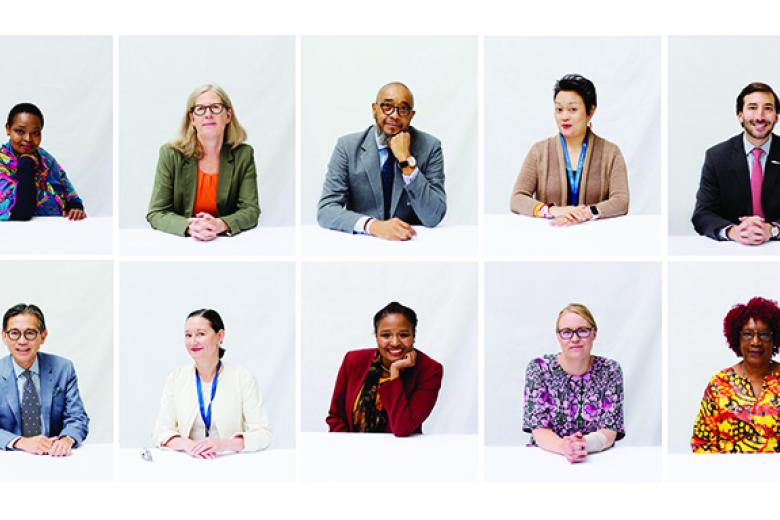
JOINT: Understanding and Strengthening EU Foreign and Security Policy in a Complex and Contested World
JOINT is an interdisciplinary research project which combines research with public opinion analysis, innovative policymaker engagement and proactive public outreach. It addresses the question: How to make EU foreign and security policy governance structures more joined-up and sustainable in a rapidly changing and contested international environment?
JOINT has received funding from the European Commission's Horizon2020 programme.
PCE project team:
Project partners:
- Istituto Affari Internazionali (IAI)
- Centre for European Policy Studies (CEPS)
- Free University of Berlin (FUB)
- Fondation pour la Recherche Stratégique (FRS)
- Barcelona Centre for International Affairs (CIDOB)
- Transatlantic Foundation (TF)
- International Centre for Defence and Security (ICDS)
- Norwegian Institute for International Affairs (NUPI)
- University of Siena (UNISI)
- National University of Kyiv Mohyla Academy (NaUKMA)
- Institute for Peace and Security Studies (IPSS)
- Center for Strategic and International Studies (CSIS)
- Centre for Economics and Foreign Policy Studies (EDAM)
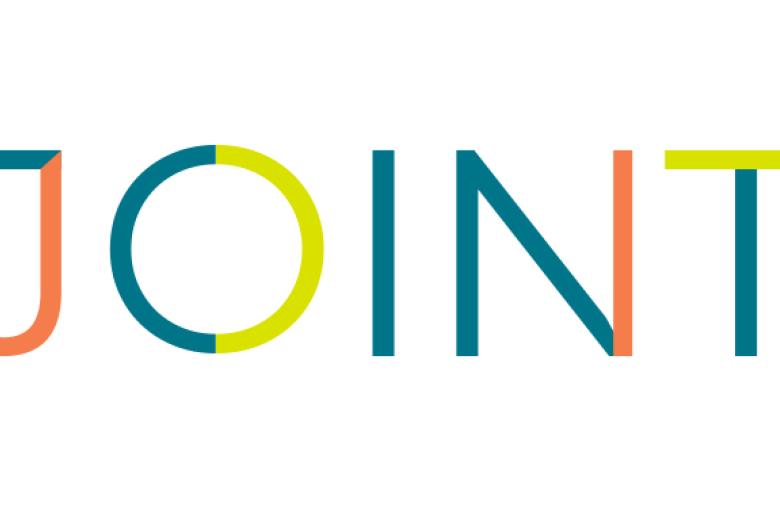
LIMES: The Hardening and Softening of Borders
LIMES, the Latin word for border, is a doctoral programme for 13 talented PhD candidates in the domain of the humanities and social sciences, centred on the theme of ‘The Hardening and Softening of Borders: Europe in a Globalising World’. It has received funding from the European Union’s Horizon 2020 research and innovation programme under the Marie Skłodowska-Curie (grant agreement No 847596).
LIMES is led by the Faculty of Arts and Social Sciences (FASoS), thereby working closely with University College Maastricht (UCM), the School of Business and Economics (SBE), and the Faculty of Law (FL). 6 out of 13 PhD candidates are employed by FASoS and 1 PhD candidate is part of PCE.
| PhD candidate | Project | Supervisor |
|---|---|---|
| Akudo McGee |
Hardening and Softening of Borders in European Integration Enlargement |
Prof. Mathieu Segers |
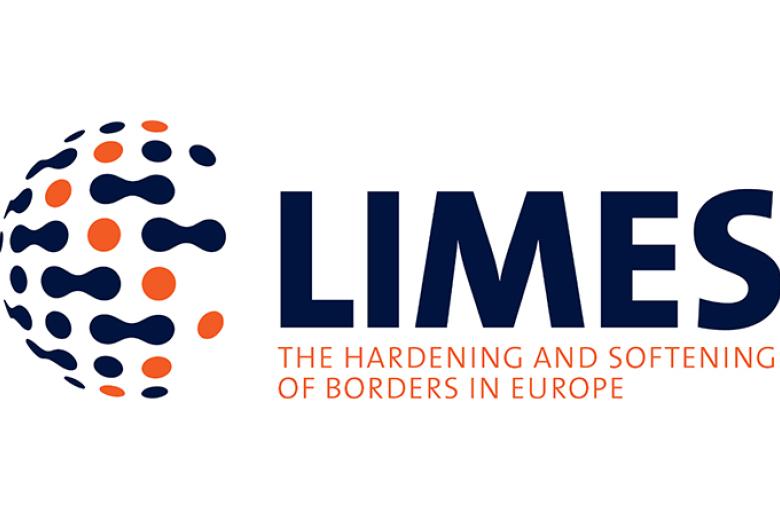
NestIOr: The Decline and Death of International Organizations
NestIOr is a five-year research project entitled "Who gets to live forever? Toward an Institutional Theory on the Decline and Death of International Organisations" (2019-2023) led by Dr. Hylke Dijkstra. Dr. Marie Debre is the postdoctoral researcher in this project. NestIOr has received funding from the European Research Council (ERC) under the European Union’s Horizon 2020 research and innovation programme (grant agreement No 802568). The project focusses on three areas: energy and environment, security, and finance.
| PCE project team | Project | Supervisor |
|---|---|---|
| Laura von Allwörden | Energy and environment | Dr. Hylke Dijkstra |
| Leonard Schuette | Security | Dr. Hylke Dijkstra |
| Giuseppe Zaccaria | Trade and Finance | Dr. Hylke Dijkstra |
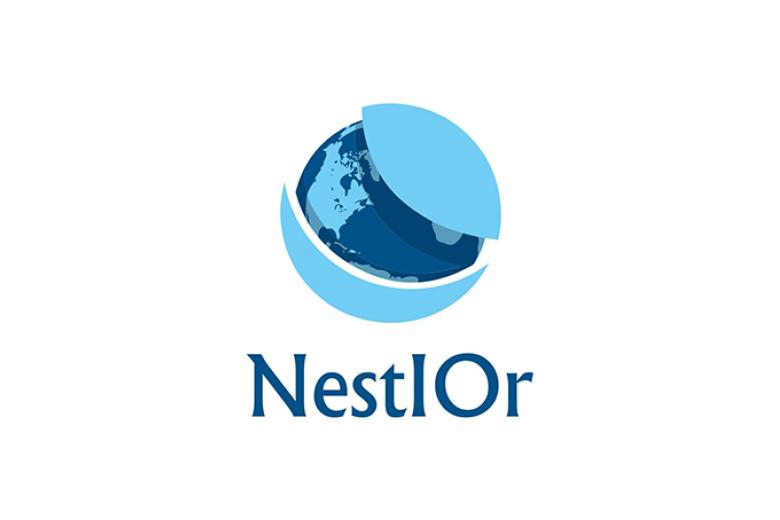
CHANCE: Jean Monnet Chair in EU Politics in a Changing Global Context
The JM Chair by PCE member Dr. Giselle Bosse aims to contribute to broadening the focus of European Studies at the Faculty of Arts and Social Sciences (FASoS) by expanding course content and research lines dealing with the challenges and chances for the EU in a changing global context. Challenges include significant shifts in the global order and rising great powers, which defy established principles of liberal international order; new security threats such as hybrid and cyber warfare; climate change; and major global technological change and innovation.
In this context, CHANCE aims to contribute to:
- strengthening research and teaching in the field of EU international relations at FASoS;
- consolidating and further developing research and teaching on the impact of a changing global context on EU politics and policies;
- supporting students and young scholars building their careers;
- increasing the visibility and relevance of FASoS research and teaching to academic and non-academic stakeholders at local, regional and national levels.
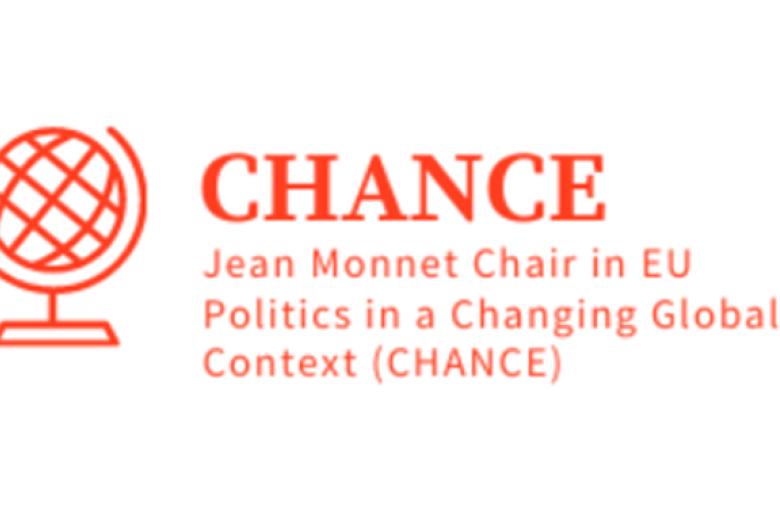
EUCTER: Jean Monnet Network on European Counter-Terrorism
EUCTER is a Jean Monnet Research Network that provides research-led excellence in teaching and learning at the intersection of two fundamental areas of EU policy: the Area of Freedom, Security and Justice, and EU counter-terrorism policy and law.
The project aims to discover and explain if and why EU counter-terrorism cooperation, as well as external relations (i.e. CFSP/CSDP, human rights, legal dimensions, etc.) have added to an increased relevance, and if and why diplomacy can add to the counter-terrorism tool set in the EU’s cooperation with third partners via its own delegations at the bilateral and multilateral levels.
Dr. Giselle Bosse contributes to this network by providing expertise on EU counterterrorism policies in the post-Soviet area, with a focus on the implications for human rights and democracy. Dr. Yf Reykers and Dr. Mariëlle Wijermars contribute research on the cybersecurity and democratic legitimacy dimensions of EU counterterrorism policies.
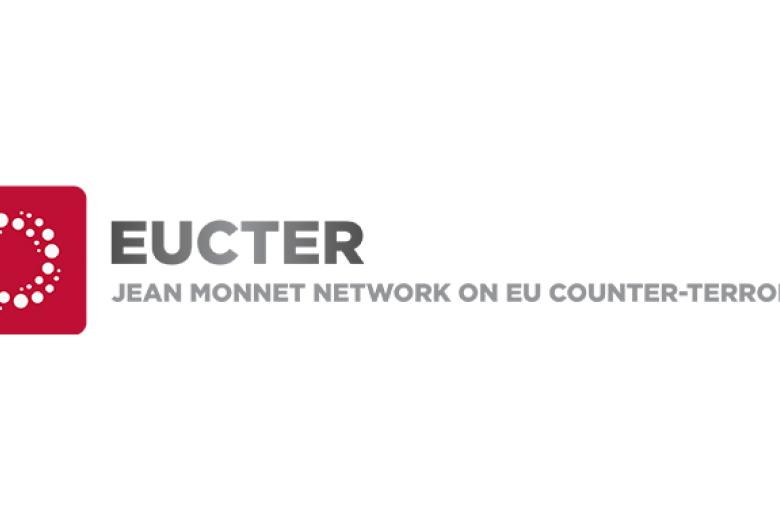
EU-East: Jean Monnet Chair on democracy and integration in Europe
The JM Chair by PCE member Dr. Gergana Noutcheva on Democracy and Integration in Europe 30 Years after the Berlin Wall addresses the internal challenges to the EU democratic acquis and their implications for the EU’s external democracy promotion role, most notably in the context of the EU enlargement policy and the Eastern Partnership by:
Strengthening the teaching at Maastricht University of Eastern Europe, the transformation processes that the post-communist region has experienced in the past 30 years since the collapse of communism and how they have affected the internal cohesion and the external credibility of the EU with respect to its core democratic values;
Conducting and supervising research on the democratisation and de-democratisation of postcommunist countries, including the EU’s impact on these processes, and inspiring the new generation of professionals and researchers interested in this field of study;
Reaching out to the community of practitioners and policy makers with policy proposals and recommendations about keeping up the EU’s internal democratic quality and enhancing the EU’s external democracy support role, especially in the EU’s immediate vicinity;
Engaging civil society members, students, teachers and the general public in a debate about the state of East-West integration as well as the future of EU Enlargement and Neighbourhood policies.
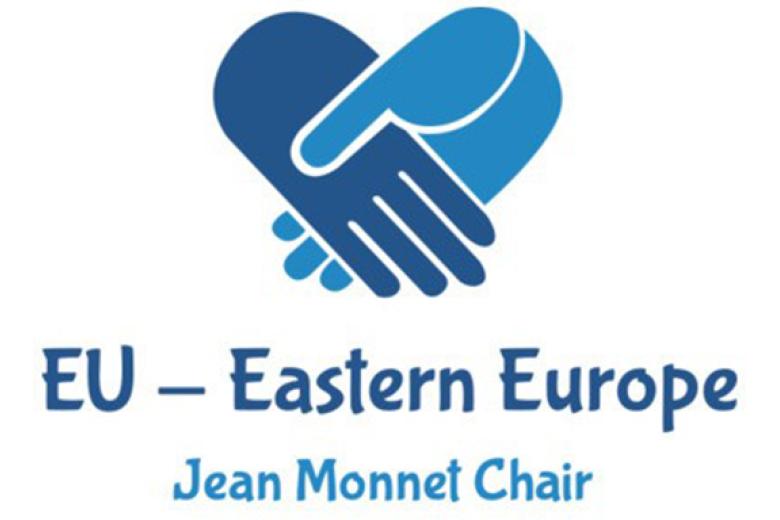
DeLab: Deliberation Laboratory
Deliberation Laboratory (DeLab): Artificial Intelligence and the Society of the Future is a four-year research project funded by the Volkswagen Foundation. It seeks to develop a moderator using artificial intelligence (AI) that can recognise escalating conflict in social media and intervene to de-escalate the situation.
The multi-disciplinary project team comprises specialists in computerised linguisitcs, philosophy, and AI, in Germany, Poland, Scotland, and the Netherlands. The UM team, led by Prof. John Parkinson, is developing and applying cultural script theory to detect the linguistic 'scripts' of conflict, before testing different AI responses in the laboratory and in the wild.

RENPET: Reconceptualising European Power in an Era of Turmoil: contestation, relevance, sustainability
RENPET (Reconceptualising European Power in an Era of Turmoil: contestation, relevance, sustainability) is a Jean Monnet Network of senior and junior scholars, policy-makers and civil society representatives that focuses on debating the political, economic and societal role of the EU in international affairs.
RENPET actively fosters cross-disciplinary and multi-national dialogue among different foreign policy stakeholders, but most prominently RENPET engages in an inclusive manner with (local) communities that are often not considered the primary interlocutors for elite-exchange on foreign policy-making.
PCE project team:
Project partners:
- Adam Mickiewicz University in Poznan
- ARENA Centre for European Studies, University of Oslo
- London School of Economics
- Institut Barcelona d’Estudis Internacionals (IBEI)
- KU Leuven
- Leiden University
- University College Dublin
- University of Kent
- University Association for Contemporary European Studies (UACES)
- Sabanci University
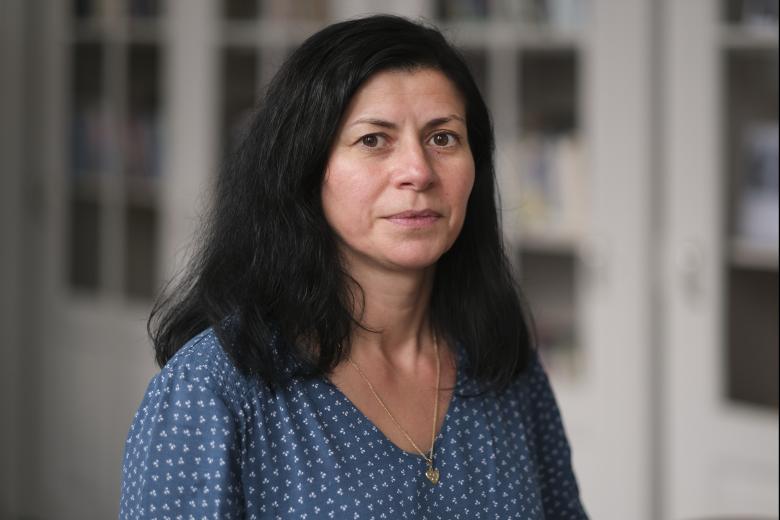
VISTA: ReVitalise the study of EU Single Market Integration in a turbulent age
The Jean Monnet Network project ‘ReVitalise the study of EU Single Market Integration in a turbulent age’ (VISTA) seeks to promote new research and teaching on contemporary developments in the single market in the areas of defence, the digital market, finance, and energy. It does so through the creation of new teaching materials at the involved universities, joint publications in academic journals, and policy papers.
PCE project team:
Project partners:
- University of Bristol
- Goethe University – Frankfurt
- National University of Kyiv-Mohyla Academy (NaUKMA)
- Tallinn University of Technology
- IAI-Rome
- CEPS-Brussels
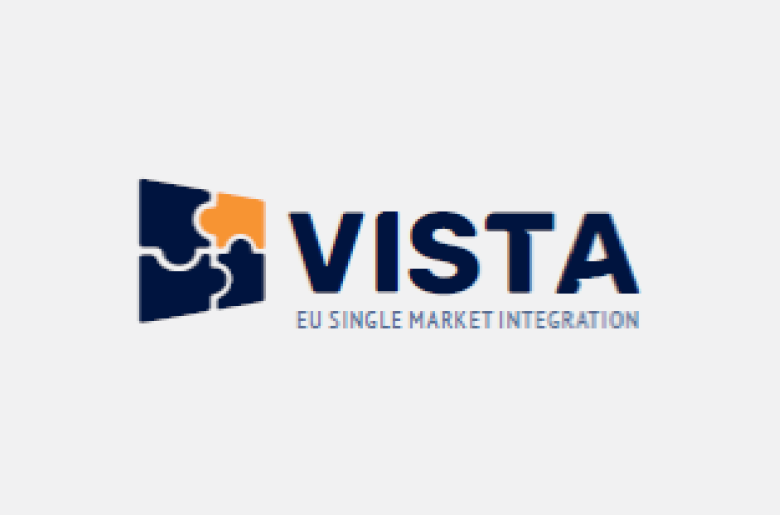
The Rise of Emerging Powers: A Challenge to Norms of Differential Treatment for Developing Countries?
The Rise of Emerging Powers: A Challenge to Norms of Differential Treatment for Developing Countries? investigates what the rise of Brazil, China and India (BICs) means for norms that rely on a binary North-South distinction. It seeks to understand under which conditions, and if so how, the rise of Brazil, China and India leads to the adaptation of global norms that provide differential treatment to developing countries as a group.
This project has received funding from the Swiss National Science Foundation and from the Deutsche Forschungsgemeinschaft.
PCE project team:
Project partners:
- University of St. Gallen
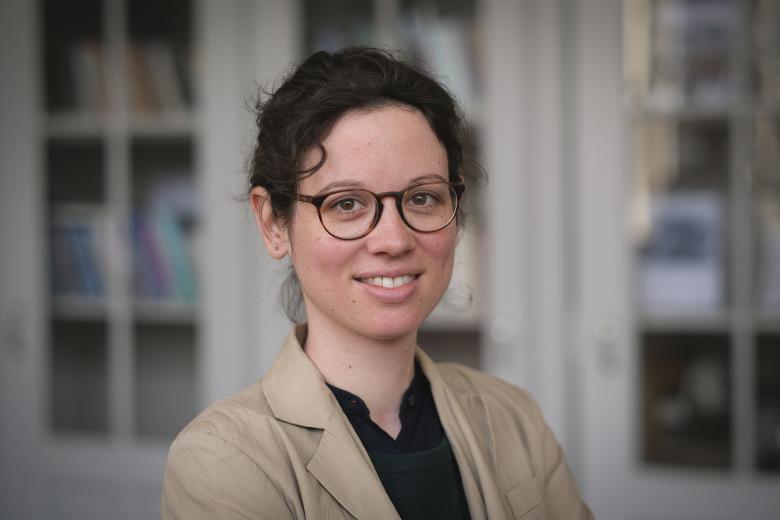
Between Politics and Technique: Designing International Extradition Law 1945-2000
'Between Politics and Technique: Designing International Extradition Law 1945-2000' seeks to examine the history of the international law of extradition during the short twentieth Century, one of the key elements to international law enforcement and respect for the international rule of law. The project aims to study how the development of this area of law played a key role in moving international law with respect to the treatment of individuals away from a rather discrete, legal-technical enterprise in 1918, and towards a highly visible and politicised process, which now seeks to be rendered technical again to evade the influence of politics on this body of international law.
This project, led by Dr. Pablo Del Hierro, has received funding from the Gerda Henkel Stiftung.
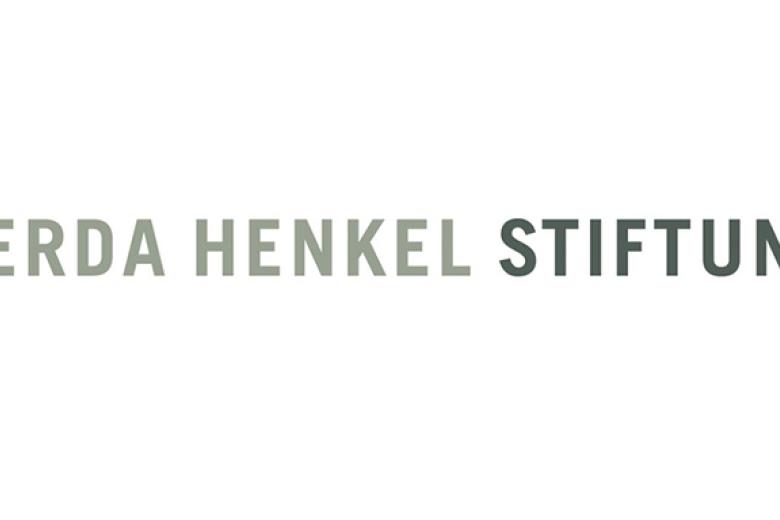
The forgotten occupation: Everyday life and social interactions in the Luxembourgish occupation zone in Germany (1945-1955)
Felix Streicher's PhD project 'The forgotten occupation: Everyday life and social interactions in the Luxembourgish occupation zone in Germany (1945-1955)' explores a case of foreign rule hitherto completely neglected in academic historical research: the Luxembourgish occupation in post-war Germany. The main focus of the project will be a detailed analysis of German-Luxembourgish social interactions inside the occupation zone through the lens of a history of everyday life, space and gender.
This PhD research project is funded by a grant from the Luxembourg National Research Fund (FNR).
Photo: Musée National d’Histoire Militaire (Lux.), Fonds Aloyse Jacoby, K336_189.
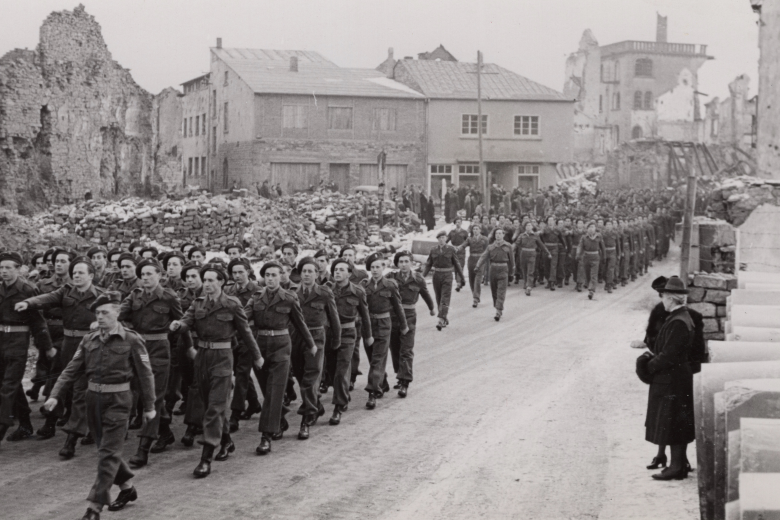
-
EMBRACing changE - Overcoming Blockages and Advancing Democracy in the European Neighbourhood
-
A coalition of hawks and doves? Explaining military receptiveness to civil society calls for transparency around the use of force
-
Faces of Trade Diplomacy: Human perceptions, memories and hopes around trade multilateralism
-
JOINT: Understanding and Strengthening EU Foreign and Security Policy in a Complex and Contested World
-
LIMES: The Hardening and Softening of Borders
-
NestIOr: The Decline and Death of International Organizations
-
CHANCE: Jean Monnet Chair in EU Politics in a Changing Global Context
-
EUCTER: Jean Monnet Network on European Counter-Terrorism
-
EU-East: Jean Monnet Chair on democracy and integration in Europe
-
DeLab: Deliberation Laboratory
-
RENPET: Reconceptualising European Power in an Era of Turmoil: contestation, relevance, sustainability
-
VISTA: ReVitalise the study of EU Single Market Integration in a turbulent age
-
The Rise of Emerging Powers: A Challenge to Norms of Differential Treatment for Developing Countries?
-
Between Politics and Technique: Designing International Extradition Law 1945-2000
-
The forgotten occupation: Everyday life and social interactions in the Luxembourgish occupation zone in Germany (1945-1955)
The Faculty of Science and Engineering offers several study programmes on bachelor's and master's level within the scope of science, technology, engineering and mathematics and several liberal arts and science programmes.
Bachelor's programmes
Computer Science
Computers are everywhere. They can already do a lot: computers paved the way for things like the internet, climate change simulations, video games, and personalized healthcare. At the same time, we still face many challenges that need better computers. That’s why computer scientists continue to push the limits of what these systems can do.
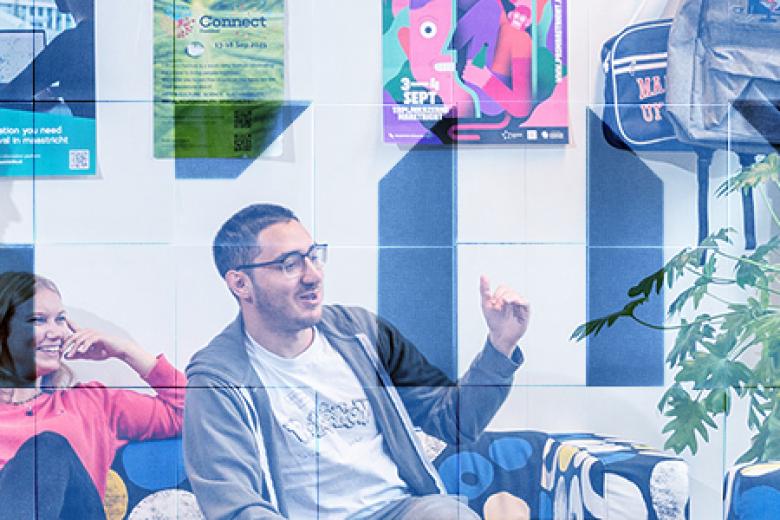
Maastricht Science Programme
Maastricht Science Programme offers the possibilty to build your own curriculum from courses in biology, chemistry, mathematics, physics, neuroscience and various interdisciplinary fields such as biomedical engineering and entrepreneurship.

Circular Engineering
To ensure a healthy planet and strong economy for current and future generations, a transition to a circular economy is needed. A circular economy is characterised by a system of closed loops, in which ideally no waste is created, renewable energy sources are used and raw materials, components and products retain their value. This transition asks for innovative scientific and engineering solutions that require a new way of thinking.

Business Engineering
Learn to respond to the challenges of today's society that is characterised by rapid technological developments and radically different business models, such as additive manufacturing or virtual reality applications. Alternatively, the growing importance of analysing and interpreting big data and understanding that humankind should be smarter in using the limited natural resources on our planet.

University College Maastricht
University College Maastricht is a liberal arts and sciences honours college that provides small-scale and personalised bachelor's education. Choose from more than 150 different courses in the humanities, social sciences and sciences to build an academic profile that helps you meet your future goals.

University College Venlo
Shape the future of sustainable food. Choose your courses in social and life sciences to tackle global food and sustainability challenges. Study health, sustainability, and innovation, and be the changemaker for a fairer food system and healthier planet!

Master's programmes
Data Science for Decision Making
Data Science for Decision Making will familiarise you with methods, techniques and algorithms that can be used to address major issues in mathematical modelling and decision making.

Biobased Materials
As the demand for sustainable solutions grows, the development of biobased materials is essential for creating innovative alternatives with unique properties. These materials play a key role in reducing environmental impact and supporting the transition to a circular economy.

Systems Biology and Bioinformatics
Systems Biology is an exciting new, holistic approach that combines biology, computational modelling, and mathematics to create innovative models. The ultimate goal is the development of virtual versions of biological systems, which lead to new insights and eventually predictions concerning the behavior of such systems.
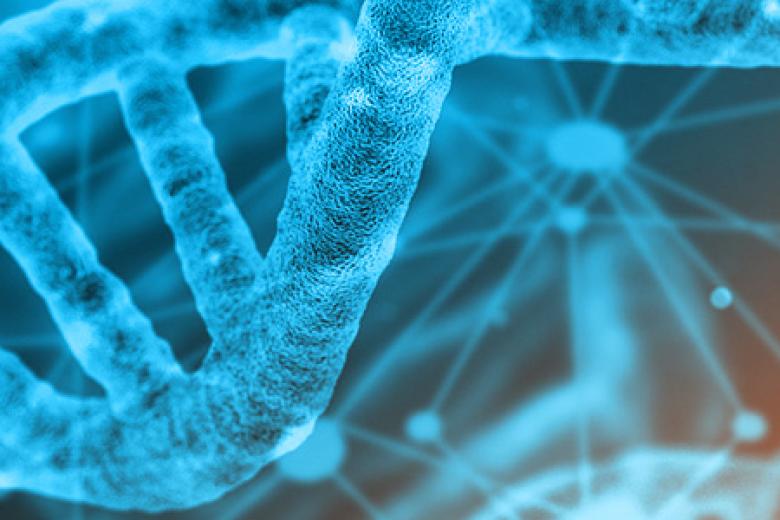
Imaging Engineering
Would you like to revolutionise how scientists view the world and everything in it? Start a master in imaging engineering!

